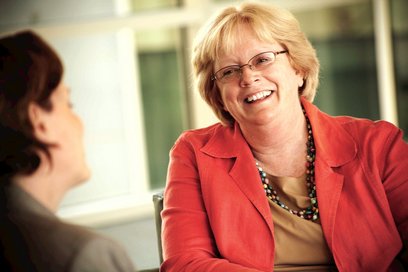About Giving
Estate Gifts and Planned Giving
-

The UC Davis Comprehensive Cancer Center offers several giving alternatives that can provide individuals with many giving options and provide a lasting benefit for cancer research and patient care.
-
Make a Big Impact with a Future Gift
When you include UC Davis in your estate plan, your generosity will have a powerful impact—inspiring bigger ideas and bolder solutions that make a difference.
Start here by learning the different gift options available to you. We also have a team of people ready to work with you to find the best charitable plan. If you are not certain which option best suits your interests or if you have questions, please contact Reese Olander at 775-544-8806 or via email at prolander@ucdavis.edu.
-
Join the UC Davis Shields Society
Friends who have included the UC Davis Comprehensive Cancer Center and the UC Davis Health System in their estate plans are recognized by membership in the Peter J. and Carolee W. Shields Society. We host an annual luncheon to honor members of this premier society as well as offer tours, lectures, and other special programs for members to explore their interest in medicine.

